Battling Mental Illness, One Home Visit at a Time
Posted on Oct 9, 2019
Community health workers are the bridge connecting their neighbors, friends, and family to local clinics across the 10 communities in which Partners In Health works in rural Chiapas, Mexico.
In July, Compañeros En Salud—as PIH is known in Mexico—launched a new initiative that trained five workers in the provision of mental health care, with the hopes of soon growing their number to 10.
This innovative program directly addresses a mental health care gap in Mexico. There are an estimated 210 psychologists and four psychiatrists in the entire state of Chiapas, home to 5 million people. Broken down by population, that means there are roughly four psychologists for every 100,000 people, compared to 12 psychologists for every 100,000 people in the rest of Mexico. About 1.4 million people in Chiapas suffer from depression and other mental illnesses.
There are simply not enough properly trained clinicians available to address the burden of mental illness in Chiapas.
That’s why PIH’s community mental health workers in Monterrey, Honduras, Laguna del Cofre, Salvador Urbina, and Capitán are key to reaching the most vulnerable patients battling depression and anxiety. After patients have been diagnosed by a PIH-supported clinician in these rural communities, they are connected with a community mental health worker, who visits their home regularly to provide counseling and support.
In honor of World Mental Health Day, each community mental health worker below shares why she is committed to providing care to her neighbors, friends, and family.
Zoemia Salas Morales
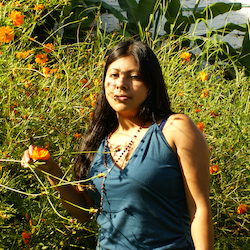
“My work consists of making home visits to patients who have been diagnosed with depression and anxiety, giving them short therapy sessions so they can understand their feelings better and get tools to overcome these conditions.
Sometimes it’s hard to be a community mental health worker. After doing my work, I have to get back home, cook for my family, take care of my husband and children, do the laundry, and clean the house. Even then, some people in the community judge me because they think I should be staying at home, that I’m not doing enough for my family. But they don’t understand I’m doing this because I want to help people, even if it means walking long distances to get to my patient’s houses.
There are some patients who refuse to get treatment because they’re ashamed of themselves. They fear people around them will find out they’re suffering from a mental illness, but that’s just a stigma we’re trying to overcome. I like to keep learning about mental health, because it’s so much different from physical pain. Sometimes people don’t realize that what’s being hurt is their feelings, and how important it is. I’m here to help them have a safe space to talk about it.”
Roselia Díaz
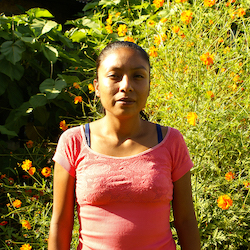
“I want to help people suffering from mental illnesses, because in the past I’ve suffered from them too. I can understand how my patients are feeling, and I want them to know that if I’ve been able to overcome these problems, anyone can.
It has been hard for me because I’m a very shy and anxious person. But while I help others, I know I’m helping myself too, conquering my own fears, and turning them into self-confidence.”
Juana Roblero
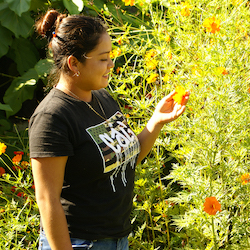
“The community mental health workers’ program immediately called my attention, because I knew my mom had suffered from depression and I didn’t know how to help her. I thought that if I became one of them, not only would I be able to help out my mom, but the rest of the people in the community, too.
Sometimes we don’t have any idea of what others are going through. And sometimes even these people can’t exactly explain how they’re feeling. That’s when I come in, helping them out with these problems, giving them hope.”
Carolina Guzmán
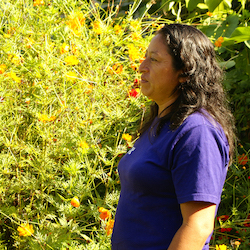
“As a community mental health worker, I feel like there are a lot of things depending on me and my perseverance. It is important not to give up on others. Because after all, I’m doing this to help them, and helping is never a burden. When it comes straight from your heart, it will never feel like it’s hard, or impossible.
I know I still have a lot to learn, but I’m positive that every single day I’m becoming a better person.”
Nelcy Roblero
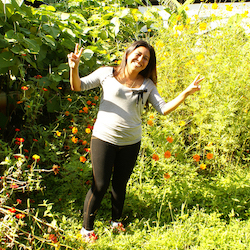
“People know me because I’m a hard-working woman, and my passion is to help other women, men, and children. I’m very happy to be a community mental health worker, because now people don’t have to travel long distances to the closest towns in order to get this kind of attention.
I like it when patients come to me and tell me how much I’ve helped them. I enjoy watching them flourish, because more than a worker, I would like for them to see me as a trusted friend, lending a hand to them, showing them that they’re not alone. Beyond the poverty and marginalization, there are so many capable, strong, and loving people around here.”

